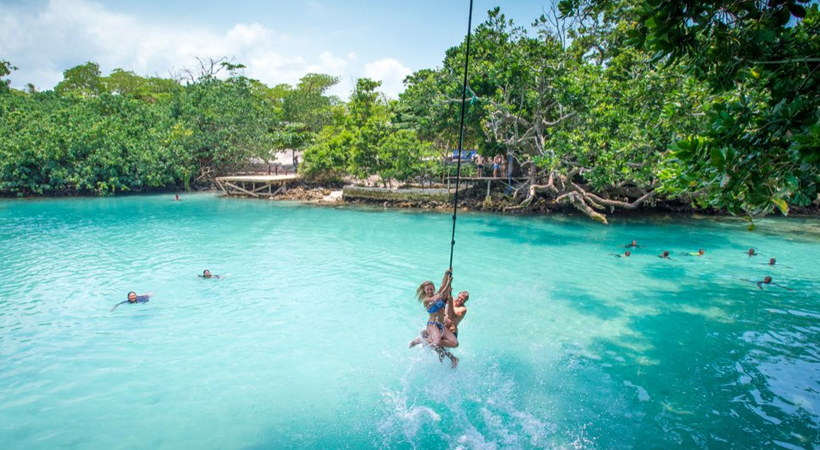Vanuatu’s tourism sector struggles as international travellers keep away

The Vanuatu government had promised its biggest stimulus package ever to try to soften the coronavirus blow, and at 4.2 billion vatu ($52 million), it was considered to be one of the largest in the Pacific on a per capita basis. But people say they are yet to receive any of the relief payments promised for those who have lost work, the ABC has reported.
Vanuatu is a South Pacific Ocean nation made up of about 80 islands that stretch 1,300 kilometres.
With school holidays in Australia, Vanuatu’s picturesque beaches and turquoise waters would normally be busy with tourists at this time of year — but due to the coronavirus pandemic, they’re empty. “Tourism has been decimated here,” Liz Pechan from The Havannah Vanuatu, a five-star resort on the island of Efate, told the ABC. Like the vast majority of hotels, Pechan currently has no bookings, and more than 30 staff have already been let go.
Twenty-three-year-old Gideon Rambe lost his job as a pizza chef at another exclusive island resort. Four months on, he’s still without formal work. So, he wakes up at 3:00 am each morning and works seven days a week, selling homemade donuts, called kato locally.
“It’s quite challenging. It’s tough on us, for me,” said Joslyn Garae Lulu, the proprietor of a successful small handicrafts business. She said her enterprise had been destroyed by the international border closures, which have kept tourists out of Vanuatu. “I’m a widow, I need to keep my family going, my kids need to go to school, and we need food,” she told the ABC.
Vanuatu’s Finance Minister Johnny Koanapo said he was happy with how his government has handled the growing economic crisis. “It’s over 4.2 billion vatu [in stimulus] that we’ve rolled out. I’m satisfied with the way it’s going, although this is the first time ever we’re running this stimulus package,” he said. He confirmed the government would extend the income support through July, but admitted they wouldn’t be able to afford it beyond that.
He said the aim of that switch was to make Vanuatu more self-sufficient, focusing on food security and bolstering the local agriculture sector — an area that has come under unprecedented pressure due to both Cyclone Harold and the global coronavirus pandemic.
“We want to create a resilient system where people can call on you to depend on agriculture, and it’s created a kind of character as well in our minds that you have to be resilient in tough times, because tough times are here to stay,” he said.







